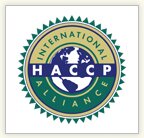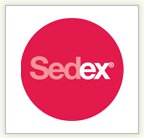Fairtrade
 The FAIRTRADE Mark is an independent consumer label which appears on products as an independent guarantee that disadvantaged producers in the developing world are getting a better deal.
The FAIRTRADE Mark is an independent consumer label which appears on products as an independent guarantee that disadvantaged producers in the developing world are getting a better deal.
For a product to display the FAIRTRADE Mark it must meet international Fairtrade standards. These standards are set by the international certification body Fairtrade Labelling Organisation International (FLO).
Producer organisations that supply Fairtrade products are inspected and certified by FLO. They receive a minimum price that covers the cost of sustainable production and an extra premium that is invested in social or economic development projects.
The Fairtrade Foundation licenses the FAIRTRADE Mark to products in the UK which meet FLO standards. The supplier (brand-owner or main national distributor) must sign the Foundation’s Licence Agreement which provides a licence to use the Mark.
www.fairtrade.org.uk
Rainforest Alliance
 The Rainforest Alliance works to conserve biodiversity and ensure sustainable livelihoods by transforming land-use practices, business practices and consumer behavior.
The Rainforest Alliance works to conserve biodiversity and ensure sustainable livelihoods by transforming land-use practices, business practices and consumer behavior.
Based in New York City, with offices throughout the United States and worldwide, the Rainforest Alliance works with people whose livelihoods depend on the land, helping them transform the way they grow food, harvest wood and host travelers. From large multinational corporations to small, community-based cooperatives, Rainforest Alliance involves businesses and consumers worldwide in their efforts to bring responsibly produced goods and services to a global marketplace where the demand for sustainability is growing steadily.
The Rainforest Alliance sets standards for sustainability that conserve wildlife and wetlands and promote the well-being of workers and their communities. Farms and forestry enterprises that meet their comprehensive criteria receive the Rainforest Alliance certification seal.
Rainforest Alliance : Values and Vision for the Future
At the Rainforest Alliance work is guided by these core values
-
Respect and concern for natural environments, local peoples and all stakeholders
-
Dedication to pioneering pragmatic innovations with respect to common practices
-
A belief that sustainability is achievable only through collaboration and mutual success
-
An unwavering commitment to integrity in all that they do.
www.rainforest-alliance.org
HACCP – (Hazard Analysis Critical Control Point)
 HACCP is a system designed to identify, assess, and help to manage potential risks associated with food production and safety. By means of in-house controls, these risks are systematically monitored and documented. Independent experts regularly monitor and assess these documentations as well as the production process itself.
HACCP is a system designed to identify, assess, and help to manage potential risks associated with food production and safety. By means of in-house controls, these risks are systematically monitored and documented. Independent experts regularly monitor and assess these documentations as well as the production process itself.
All risks which might negatively affect the quality of the product and the safety of our employees, thus ultimately the health of the consumer, are strictly controlled.
http://haccpalliance.org/
SEDEX – (Suppliers Ethical Data Exchange)
 Sedex uses the latest technology to enable companies to maintain and share data on labour practices in the supply chain.
Sedex uses the latest technology to enable companies to maintain and share data on labour practices in the supply chain.
Sedex is a secure, web-based system for companies to input data on labour standards at their production sites. The Sedex system has been designed to allow companies who are in an existing trading relationship to share this information, saving time and money lost in duplicated information. As a result, companies are better able to drive and demonstrate improvements.
The development of Sedex has been supported by a group of UK retailers and suppliers, including Geest, Marks & Spencer, Northern Foods, RHM, Sainsbury’s, Tesco, Uniq and Waitrose.
Ethical Tea Partnership (ETP)
ETP began work in 1997 as the Tea Sourcing Partnership, an organisation started by a number of UK-based tea packing companies who shared four core beliefs:
-
They have a shared responsibility for the social and ethical conditions involved in sourcing the tea they buy.
-
Activities in this area should be non competitive and apolitical.
-
They respect the cultural and legislative differences in tea producing countries, but aspire to international standards.
-
They seek to work in partnership with tea producers.
In September 2004 ETP changed its name to the Ethical Tea Partnership. The new name explains more clearly what they do and also marks a new phase of growth when ETP would be communicating more actively with their stakeholders and playing a more proactive role in the ethical trading of tea.
